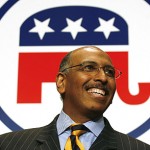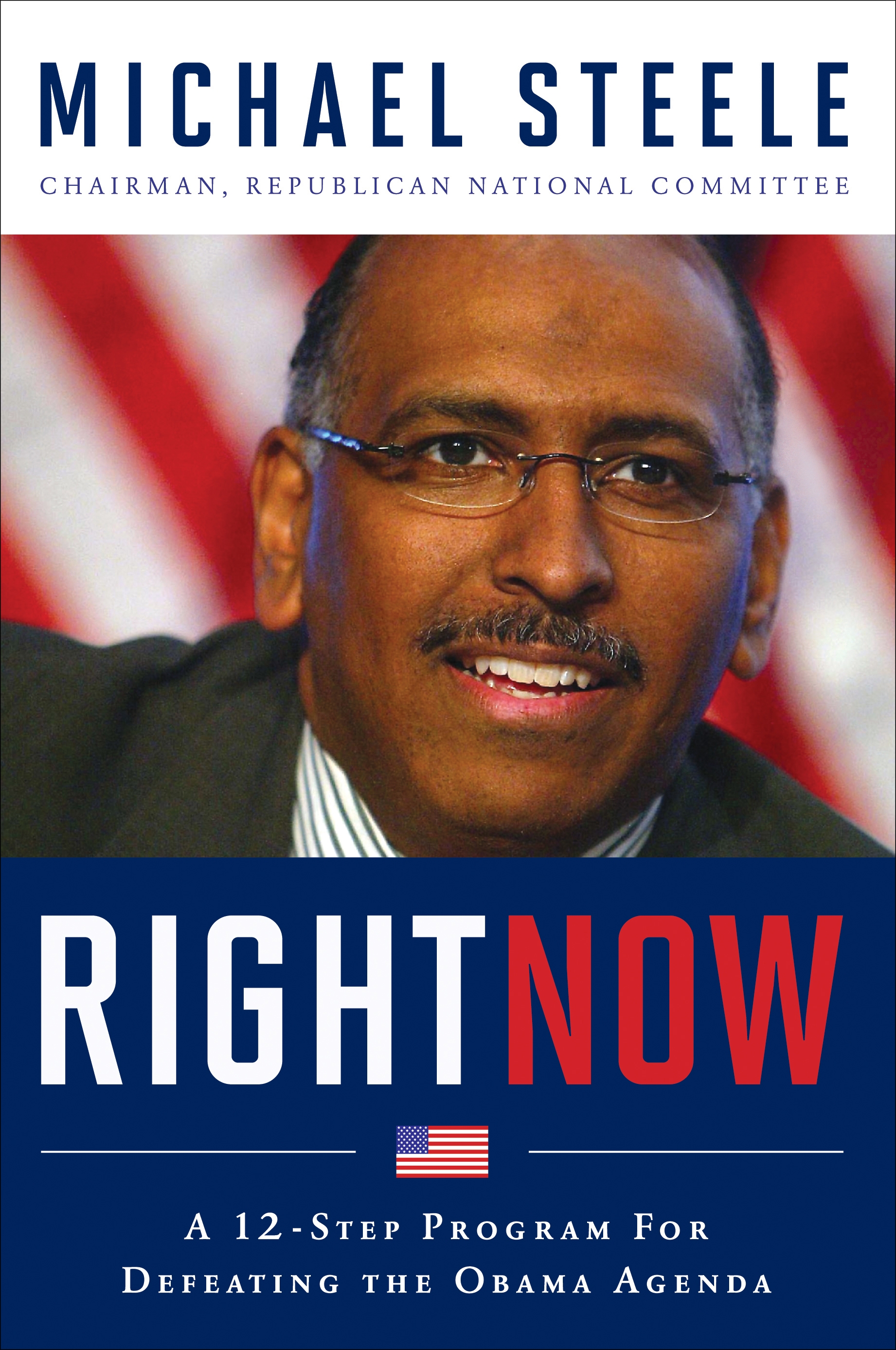By Michael Steele, on Mon Sep 19, 2011 at 8:30 AM ET
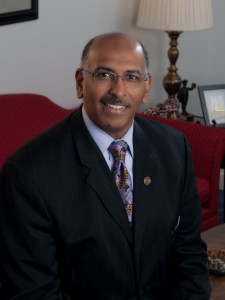 Racial and economic profiling in education endangers black students’ success. Why put up with it? Racial and economic profiling in education endangers black students’ success. Why put up with it?
Fifty-seven years ago, the U.S. Supreme Court ruled that the standard of “separate but equal” in our education system was one that is fundamentally unequal — and, moreover, is un-American, unconstitutional and immoral.
In the nearly 60 years since the Brown v. Board of Education Supreme Court decision, we have seen incredible progress. But we have also witnessed a steady decline in the performance and self-esteem of our children as they grapple with a cumbersome and often myopic educational system.
Sadly, far too many students entering classrooms this fall have already been taken hostage by the politics of the moment and a zero-sum mentality in education that serves no purpose. The truth is, there remain inherent disparities in our education system that have eaten away at the very spirit of the Brown decision.
For too long, federal and state bureaucrats have talked about what they want to do for education without an appreciation for what they have already done to education: made it harder to bring our education system into the 21st century.
In my 2005 report on the state of education in Maryland during my term as lieutenant governor, I noted, “The most important work of a free society, other than defending its very existence, is the education of its population. For Maryland to be serious about preparing all of its children to succeed in tomorrow’s America, it must provide for consistent, high quality instruction and stable, effective leadership in all of its schools.
“In the fast-changing world that future generations will inhabit, the highest quality education can no longer be viewed as a privilege of the few. It must be the norm for every child. Any other course of action will doom our future generations in Maryland and our nation to a second-class status.”
Legislation Alone Doesn’t Work
Such clarion calls for reforms and the creation of realistic standards have largely been met with a mixed response from educational professionals and parents. From Maryland to California, we’ve applauded every form of experimental methodology there is, but somehow we’ve forgotten how to do the basics.
 As Dr. John Jackson, president of the Schott Foundation for Public Education, recently noted, “We cannot become so affixed on the spotlights that we constructively ignore the larger headlights from the train wreck facing our country by the 1.2 million [American students] we are losing each year [as they drop out of school]. We have too often settled for the sweet taste of minor success over stomaching the bitter taste of the reality that without systemic reform we are winning some battles, but largely still losing the war.” As Dr. John Jackson, president of the Schott Foundation for Public Education, recently noted, “We cannot become so affixed on the spotlights that we constructively ignore the larger headlights from the train wreck facing our country by the 1.2 million [American students] we are losing each year [as they drop out of school]. We have too often settled for the sweet taste of minor success over stomaching the bitter taste of the reality that without systemic reform we are winning some battles, but largely still losing the war.”
Read the rest of…
Michael Steele: Learning While Black
By Michael Steele, on Wed Sep 14, 2011 at 8:30 AM ET
 Ten years later, President Obama has carried on President Bush’s mission to keep our homeland safe. Ten years later, President Obama has carried on President Bush’s mission to keep our homeland safe.
Sept. 11, 2001, 8:46 a.m. You remember where you were. You remember what you felt. American life would never be the same again — how we boarded a plane, how we viewed our neighbors. The images of hijacked planes slamming into skyscrapers, streets covered in ash, a scorched field in Pennsylvania, people running — but not knowing where to — are etched in our memories. Our friends, neighbors and family members — 2,977 of them — are gone. And within hours of realizing that a new enemy had emerged, defiant, we, too, became resolved: Never again.
Ten years later we are wiser, smarter and safer; our homeland security is strengthened. The American people have adapted to the new normal, and life, as they say, goes on. But we have paid a price. From the streets of Baghdad to the caves of Afghanistan, America’s blood and treasure have been spilled. To date, 6,234 men and women in uniform have made the ultimate sacrifice to preserve the very freedoms and liberties that have defined this nation.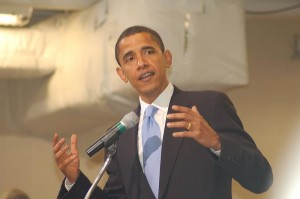
The decade since 9/11, however, could have been very different if not for the leadership of Presidents George W. Bush and Barack Obama.
Often the answer to the question, “What happens next?” can be a heavy burden for leadership to bear. Every decision matters and carries with it consequences. So in those hours and days immediately following the attack, decisions were made that would define very clearly for America what happened next.
Read the rest of…
A President’s Grasp of the Post-9/11 World
By Michael Steele, on Thu Aug 4, 2011 at 8:30 AM ET  I, like many of you, probably spent more time than I really wanted watching political “leaders” in Washington free-fall to a decision on our nation’s debt. As I listened to the partisan excuses, whines and outright misrepresentation of what triggers a “default,” it occurred to me that all of the drama and general posturing by both Democrats and Republicans over raising the nation’s debt ceiling could have been avoided. I, like many of you, probably spent more time than I really wanted watching political “leaders” in Washington free-fall to a decision on our nation’s debt. As I listened to the partisan excuses, whines and outright misrepresentation of what triggers a “default,” it occurred to me that all of the drama and general posturing by both Democrats and Republicans over raising the nation’s debt ceiling could have been avoided.
When asked on Dec. 8, 2010, whether he and the other Democrats would raise the debt ceiling, Senate Majority Leader Harry Reid responded, “Let the Republicans have some buy-in on the debt. They’re going to have a majority in the House. I don’t think it should be [done] when we have a heavily Democratic Senate, heavily Democratic House and a Democratic president.”
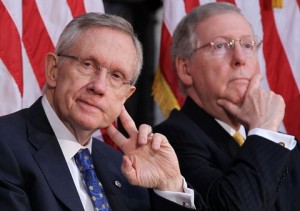
So as I watched members of Congress, especially Sen. Reid, looking sullen and complaining about the Tea Party caucus in the House and the “intransigence of Republicans” overall throughout the debt-ceiling talks, I thought back to that Dec. 8 interview and wondered what we would be talking about right now if the Democrat majorities in the House and Senate (under the leadership of the White House) had passed an increase in the debt ceiling in December. Perhaps we’d be talking about jobs?
It is no wonder, then, that this proud nation and its hardworking citizens found themselves on the brink of financial default and bankruptcy because some in Washington would rather play “gotcha” politics with our problems than solve them.
A Federal Fiscal Crisis
And yet we can no longer afford to deny what we already know: Federal spending has spun out of control, surging 47 percent between 2001 and 2008, with spending increasing 9.1 percent (or $249 billion) in 2008 (the last year of President George Bush’s term) and now reaching a whopping 30 percent of the gross domestic product after the first two years of the Obama administration. Annual entitlement-program spending accounts for 54 percent of the nation’s budget, and these fixed costs have soared by 6.4 percent since 2000.
Read the rest of…
Michael Steele: Debt Deal Is Not About Who Won and Lost
By Michael Steele, on Tue Jul 12, 2011 at 8:30 AM ET

Although I grew up in Washington D.C., to me Capitol Hill was a very distant place. I felt that I was living in the real world; while Capitol Hill was in some parallel universe. I just didn’t understand how people up there thought. And I have to tell you the truth, as I watch our elected leadership deal with the very serious issues facing our nation’s fiscal health, I still don’t.
Take perhaps the most basic question of all when it comes to tax and budget policy—do deficits matter? That question has generated a lot of debate in Washington in recent weeks. I am mystified it has to be asked.
I am aware of the academic debate concerning the interplay between deficits and interest rates. I also acknowledge the points often made by The Wall Street Journal’s editorial pages about the empirical evidence casting doubt about the absolute linkage between the two, for example.
I first learned the value of a dollar not from The Wall Street Journal, but from a sharecropper’s daughter who had little choice but to drop out of school to work the tobacco and cotton fields of South Carolina. She later went out into the world fighting to provide for a family with only a 5th grade education. She worked for 45 years in a Laundromat, and the most she ever made in her life was about $3.80/hour.
Through the remarkable example of her life and her will, my mother taught me about fiscal discipline, the value of a dollar, budgeting; and most importantly, how thoughtful investment, when coupled with hard work, can provide empowerment and opportunity. So, as someone who has struggled to run a small business, and who had to balance budgets and manage that most precious of resource—taxpayer dollars—as a statewide elected official in a state where budgets must, by law, be balanced—deficits do matter.
 Deficits mean that our kids have to pay the bills we run up, and that, until those debts are paid off, we have to borrow the money to fund the shortfall from creditors around the world, to whom we are increasingly beholden. Can you say “China”? Deficits mean that our kids have to pay the bills we run up, and that, until those debts are paid off, we have to borrow the money to fund the shortfall from creditors around the world, to whom we are increasingly beholden. Can you say “China”?
So as our nation convulses from one more report of rising unemployment (now 9.2 percent), and more and more of our citizens doubt the sincerity, let alone the ability of elected officials to actually get something done, what must the White House, the GOP led Congress and Democrats in the Senate do to show they get it and are serious about restoring strength to our economy? (1) Respect where the money comes from in the first place—you and me; (2) Make the tough choices—now, not down the road; and (3) stop playing political games to block needed reforms.
Read the rest of…
Michael Steele: The Old Rules No Longer Apply
By Michael Steele, on Thu Jun 23, 2011 at 8:30 AM ET  Summertime, and the living won’t be easy. From electricity to groceries to clothing, the cost of everything you need, and of most things you want, has increased. But there are few places where Americans have felt the sting of higher prices more profoundly than at the gas pump. And you don’t have to own a car to feel it; just get on a plane, take the train — heck, catch a cab. Summertime, and the living won’t be easy. From electricity to groceries to clothing, the cost of everything you need, and of most things you want, has increased. But there are few places where Americans have felt the sting of higher prices more profoundly than at the gas pump. And you don’t have to own a car to feel it; just get on a plane, take the train — heck, catch a cab.
As we begin to pack up the family car for that long-awaited summer vacation at Grandma’s house, a gallon of gasoline averages $3.80, $1.07 more than this time last year. Maybe you can just email Grandma a photo of the kids instead.
Or better yet, maybe President Barack Obama could address workers at a research facility funded by a $528.7 million stimulus-act grant to develop a new alternative mode of energy-efficient transportation: airborne porcine units (also known as “flying pigs”). Although the facility won’t have produced a commercially viable prototype, Obama could go on to express confidence that, with additional government investment (aka “spending”), the needed technology breakthroughs would be achieved. I can hear him now: “When pigs fly, my energy policies will be vindicated, and the taxpayer dollars we have committed to this effort will greatly lessen our dependence on foreign oil.”
Fantasy? Of course, but then again, taxpayers are on the hook for a $528.7 million loan to a company seeking to make plug-in electric cars that the Obama administration announced with great fanfare in 2009. The result? That company recently breathlessly announced that it plans to sell a car for the bargain price of $96,850 that charges in “as little as six hours” and has — wait for it — a 50-mile range before a backup gasoline engine kicks in.
Read the rest of…
Michael Steele: Obama’s Energy Policy vs. Reality
|
|
 As Dr. John Jackson, president of the Schott Foundation for Public Education, recently noted, “We cannot become so affixed on the spotlights that we constructively ignore the larger headlights from the train wreck facing our country by the 1.2 million [American students] we are losing each year [as they drop out of school]. We have too often settled for the sweet taste of minor success over stomaching the bitter taste of the reality that without systemic reform we are winning some battles, but largely still losing the war.”
As Dr. John Jackson, president of the Schott Foundation for Public Education, recently noted, “We cannot become so affixed on the spotlights that we constructively ignore the larger headlights from the train wreck facing our country by the 1.2 million [American students] we are losing each year [as they drop out of school]. We have too often settled for the sweet taste of minor success over stomaching the bitter taste of the reality that without systemic reform we are winning some battles, but largely still losing the war.” 








